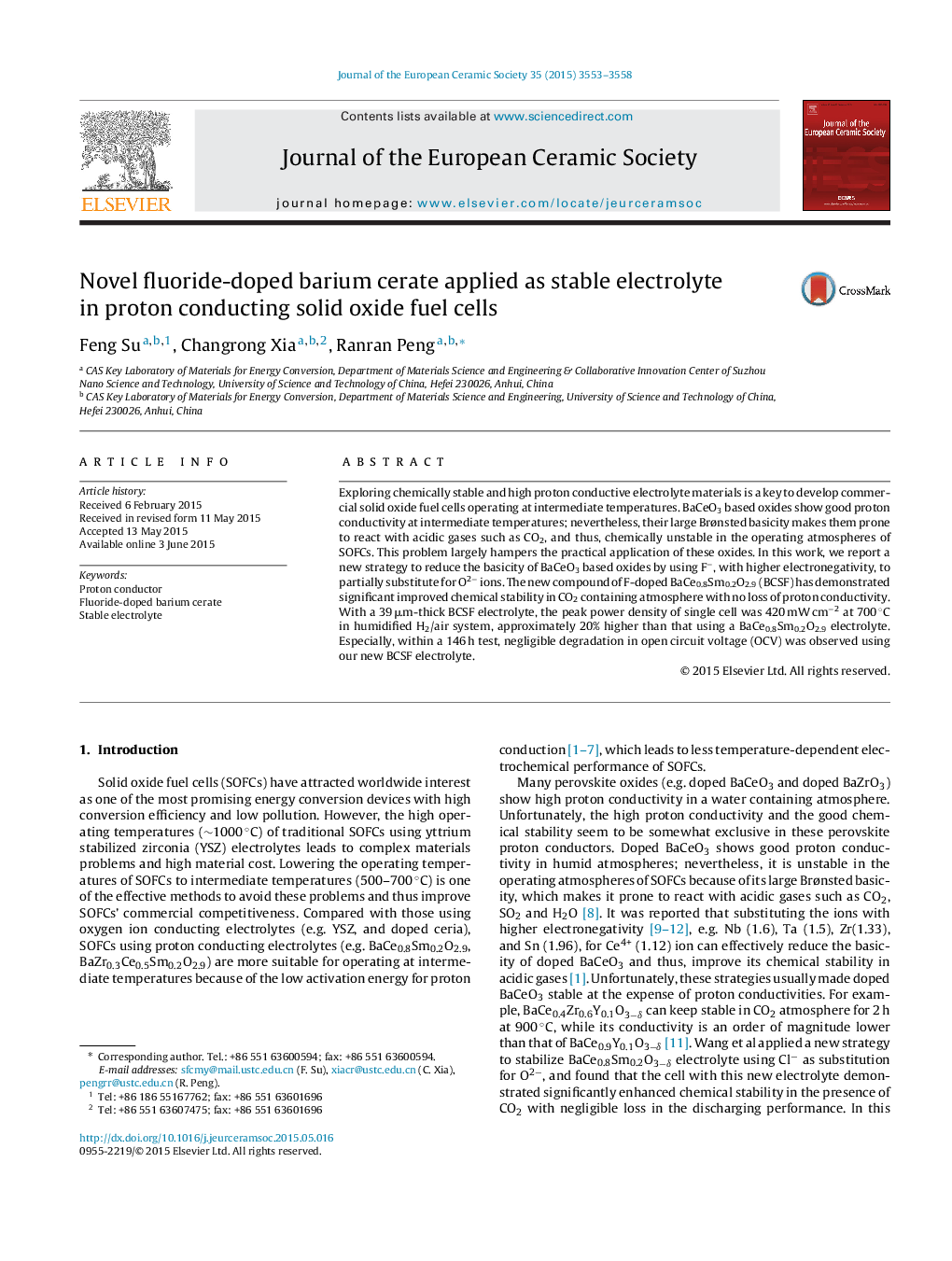| Article ID | Journal | Published Year | Pages | File Type |
|---|---|---|---|---|
| 1473580 | Journal of the European Ceramic Society | 2015 | 6 Pages |
Exploring chemically stable and high proton conductive electrolyte materials is a key to develop commercial solid oxide fuel cells operating at intermediate temperatures. BaCeO3 based oxides show good proton conductivity at intermediate temperatures; nevertheless, their large Brønsted basicity makes them prone to react with acidic gases such as CO2, and thus, chemically unstable in the operating atmospheres of SOFCs. This problem largely hampers the practical application of these oxides. In this work, we report a new strategy to reduce the basicity of BaCeO3 based oxides by using F−, with higher electronegativity, to partially substitute for O2− ions. The new compound of F-doped BaCe0.8Sm0.2O2.9 (BCSF) has demonstrated significant improved chemical stability in CO2 containing atmosphere with no loss of proton conductivity. With a 39 μm-thick BCSF electrolyte, the peak power density of single cell was 420 mW cm−2 at 700 °C in humidified H2/air system, approximately 20% higher than that using a BaCe0.8Sm0.2O2.9 electrolyte. Especially, within a 146 h test, negligible degradation in open circuit voltage (OCV) was observed using our new BCSF electrolyte.
